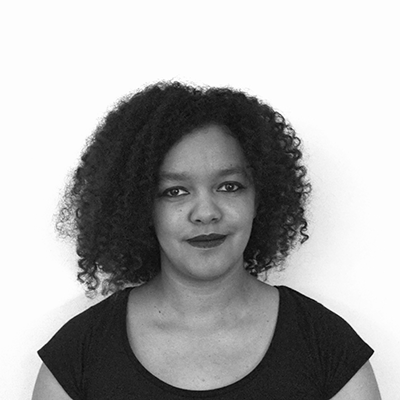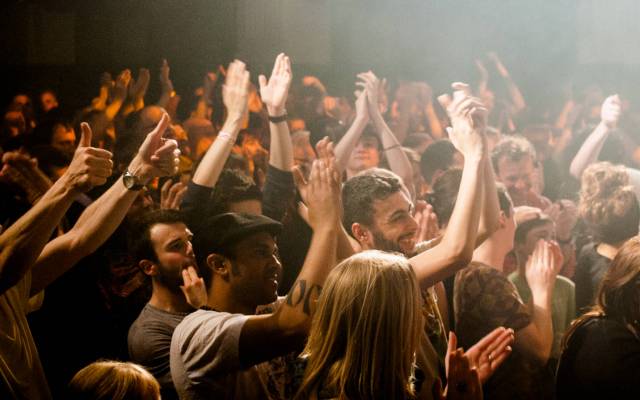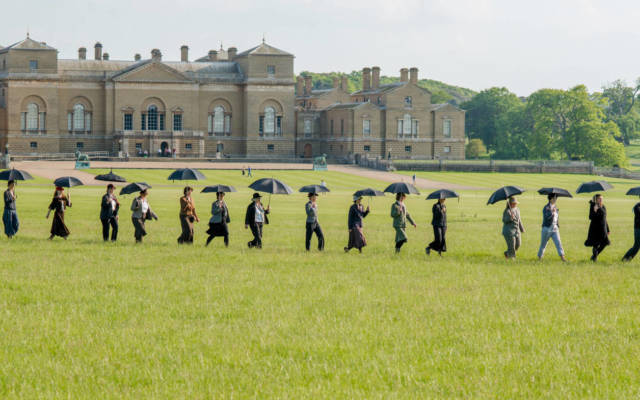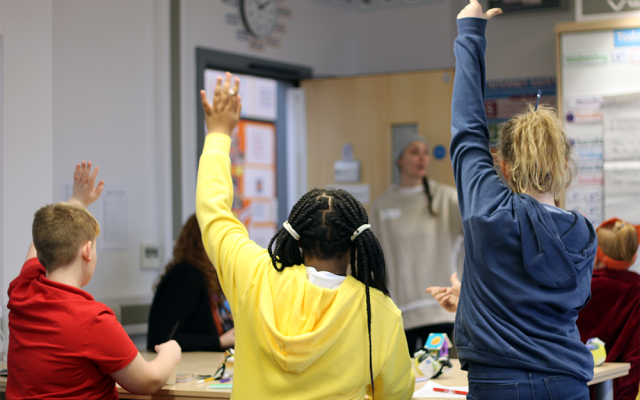15.01.21

Sascha Goslin: Creating Space for Change
Freelance Producer Sascha Goslin was one of six successful applicants to the Festival’s Creative Individuals Norfolk programme. Six months on, Sascha has established the Norfolk Black and Persons of Colour (POC) Creatives Network to provide a vital place for workers across the creative sector to meet, discuss and share. In this post, Sascha tells us about the origins behind, and ambitions for, this necessary project.
The Norfolk Black & POC Creatives Network (the Network) has been founded with the aim of working as a support and advocacy network for creatives living and working in Norfolk.
I came to Norfolk in 2009 to study Law with European Legal Systems at the University of East Anglia, and since graduating I’ve worked for various circus and theatre organisations, locally and nationally, as an employee and a freelancer.
How did the Network come into existence?
There isn’t really a short answer, but I can summarise it as being twofold.
Since I started working as a freelancer in 2016 I’ve felt that there has been an absence of local networks for creatives to meet each other and support each other, which if you aren’t working as part of a team can feel very lonely. Because I work mostly with outdoor circus companies I’m a member of organisations such as Outdoor Arts UK, who have been a great support, but I’ve missed something like that locally. I know lots of networks for artists in various artforms nationally, and in different areas of the country, but there wasn’t really anything comparable locally.
The second reason is, in the wake of the George Floyd murder in the US and the subsequent Black Lives Matter protests around the UK, I started having a lot more conversations about diversity, representation and inclusion, and how important meaningful inclusion is. I started speaking to people more about their experiences, and challenges, and the barriers we’ve faced, and realised that I wanted to do something, to help not just myself but others in a similar position.
It was these two desires, to be able to connect with other creatives locally, and to support other creatives and improve inclusion locally that lead me to applying to the Creative Individuals Norfolk programme for support to start the Network.
What do you hope the Network will achieve?
The most important thing for me is that the Network enables the building of connections and a community, so that people can discuss their hopes, aspirations, concerns and frustrations, and support each other by sharing our skills, knowledge and opportunities to help all of us grow as creatives.
As the Network grows, another hope is that we will make it easier for local organisations to make their programming, curation and workforce more representative in a meaningful and lasting way. It will make it easier for creatives who are new to making work or new to Norfolk build a bridge with organisations locally. We can help provide the knowledge of who best to approach for support and what support options there are available now, calling and advocating for the support we find to be lacking.
How long do you think it will take to achieve the Network’s aim?
I think that the Network will continue to grow throughout its lifetime and the focus will develop and change in response to the needs of the Network, and also the sector.
I’m very optimistic that over time we will see greater inclusion and representation in the region. All of the organisations and individuals I have spoken to locally have been very supportive, which is wonderful, and I think nationally there has been a clear shift in consciousness about the importance of inclusion at all levels. The arts can definitely be the leading sector in that. However, I’m also aware that achieving meaningful and lasting inclusion is a long-term endeavour, which won’t happen overnight, especially as the creative industries are under increasing pressure due to the impact of COVID.
What is the difference between representation and inclusion and why is it important?
It depends on the context, I generally like to think of representation as being more important for the audience. It’s the opportunity to see yourself in someone else, whether that’s a character, a role model, a leader, etc. It also impacts how people might perceive you, or expect you to be. Positive representation (in the media, in plays etc.) can help counteract negative or harmful stereotypes we hold about certain groups.
Inclusion, for me anyway, is for the individual or group involved. It means that you can voice a view or opinion and it will be listened to and respected. It may not be agreed with, but it will be considered by others around you. When taking part in something that is meant to be representative but isn’t inclusive, it can feel tokenistic, like it’s happening just to tick a box, rather than to actually be part of something in a meaningful way.
‘The way society is set up, sometimes it can feel like creatives, especially freelancers, have to compete with each other all the time, but in my experience when we work together we are all much more successful.’
Besides the aims previously mentioned, what are your long-term aspirations for the Network?
That will depend on what the members of the Network need and want.
Personally, I have so many ideas, one of which I am particularly passionate about is to establish a regular continued professional development (CPD)/training programme for artists at all stages of their careers to gain new skills and improve their existing skills, without having to travel to London or beyond. While I’m aware there are some training opportunities in Norfolk, compared to other regions it feels like there aren’t that many and they’re often aimed at young adults. Certainly, I found when I started working as a freelancer at 25/26 I was ineligible for a lot of opportunities, so would love to make it easier for people who come to the arts in their mid-20s like I did.
I would also like the Network to develop a library of useful resources for members. For example, I’ve collated a number of useful links to other organisations who have created important resources, such as a list of successful funding applications that people can download to read. I will also be spending time creating resources over the next year.
Why should people join the Network?
We can achieve a lot more as a collective than we can as individuals, even if we have an individual practice. Working as a solo freelancer, being able to draw on the support and knowledge of others can make our lives a lot easier. The way society is set up, sometimes it can feel like creatives, especially freelancers, have to compete with each other all the time, but in my experience when we work together we are all much more successful.
In addition to the support, throughout history it’s shown that it’s most effective to advocate for change as a collective, rather than as individuals. Additionally, to achieve it’s aims, the Network needs to be responsive to what its members want and need, so if you feel we could be doing something more, or something better, join us, let us know and help us shape it.
You can join the Norfolk Black and POC Creatives Network here, visit their website for more information here, or follow their work on Facebook or Twitter. Find out about the other Creative Individuals Norfolk projects here.
Masthead Image: Walking, Holkham Estate, Festival 2012 © Chris Taylor


